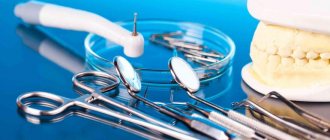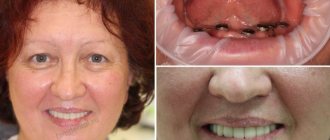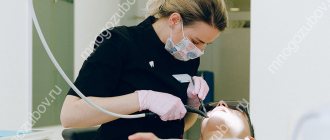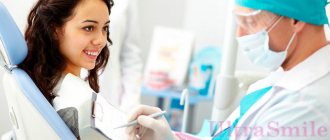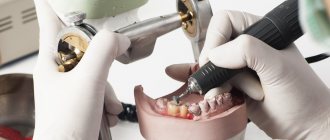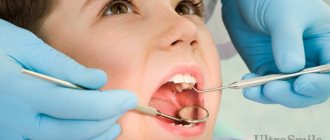Is a compulsory medical insurance policy sufficient to obtain a quota?
The quota in orthopedic dentistry is the amount of qualified and high-tech medical care that a person can receive if he needs prosthetics. In this case, assistance is financed from the state budget. But not everyone can receive it, but only a person who meets certain criteria. Just having a compulsory medical insurance policy (compulsory health insurance) and a passport of a citizen of the Russian Federation is not enough here. Documents confirming social status, income or special contribution to the welfare of the state are also needed - the full list will be given below.
Who can use the quota
Who is entitled to a quota for dental prosthetics? It can be received by socially vulnerable segments of the population - pensioners, disabled people, disabled children, people with severe pathologies. The list should also be supplemented by pensioners of the Ministry of Internal Affairs and those who retired from military service, heroes of the Second World War, home front workers, Heroes and Veterans of Labor, Heroes of the USSR and the Russian Federation, mothers of many children, etc.
You need to know that there are several programs for free dental prosthetics - federal and regional. The federal list includes only those pensioners who retired from government, military service and the Ministry of Internal Affairs. Regions or subjects of the Russian Federation supplement this list with other categories of citizens. You can use the quota for free prosthetics once every 5 years.
Who has the right to extraordinary preferential prosthetics?
A disabled person can exercise the right to install or repair prostheses free of charge only once every five years. In this case, after submitting all documents and receiving permission, you must wait in line. It is formed depending on the date of application, disability group, state of the dental system and general health. When the turn comes, the applicant is given a coupon and informed of the name of the dental clinic where he will be provided with dental prosthetic services.
Urgently, at the expense of budgetary funds, prostheses are installed in the presence of serious diseases and pathologies. Typically this is:
- previous operations on the gastrointestinal tract;
- accidents and injuries that caused tooth loss;
- the presence of malignant tumors of a certain type;
- oncological diseases of the dental and digestive systems;
- some other cases provided for by law.
To exercise the right to urgent installation of prostheses, a disabled person must obtain a certificate from a medical institution indicating the existence of exceptional circumstances and submit it to the social protection authorities.
Composition of the “first” and “second” stages
The first stage includes the following categories of the population:
- Heroes and veterans of the Great Patriotic War,
- participants in military conflicts (servicemen of the army of the USSR or the Russian Federation),
- victims of repression,
- persons with disabilities,
- Heroes and Veterans of Labor.
“Those categories of citizens for whom dentures are vitally necessary can bypass the queue for free prosthetics under the Federal or regional program and get to the beginning. This includes patients with oncological pathologies, serious injuries to the jaw system, as well as those who have undergone surgery on the gastrointestinal tract. You just need to get a certificate from your doctor."
Complex on 4 OSSTEM implants with delayed loading - from RUB 170,000.
Complex implantation Osstem (South Korea) with delayed loading after 4-6 months.
Guarantee for the doctor’s work - unlimited Call now or order a call
Opening hours: 24 hours a day - seven days a week
The second group includes the following groups of citizens:
- non-working pensioners who have no additional income other than a pension,
- persons whose average per capita income is less than half the subsistence level in the region,
- liquidators and disabled people of the Chernobyl accident.
Read more about what kind of prosthetics is suitable for pensioners and how to get it for free.
Preferential dentures
The NAVA dental clinic has a program under which dental prosthetics are available free of charge to pensioners, disabled people, labor veterans, as well as other citizens of the preferential category of the Moscow population. Dental prosthetic services are provided at the expense of the city budget and approved by order of the Moscow Department of Health dated 08.08.2017 No. 558 “On approval of the price guide for orthopedic dental services provided by medical organizations subordinate to the Moscow Department of Health to certain categories of citizens at the expense of the budget city of Moscow".
Manufacturing time for dentures
Dentures are manufactured in accordance with the deadlines established for this by current legislation:
- fixed bridge prosthesis – up to 5 weeks
- removable dentures – up to 4 weeks
- clasp prosthetics – up to 5 weeks
- single crowns – up to 14 days
- combined crowns – up to 21 days
- plastic crowns (kappa) – up to 7 days
- repair of removable dentures – up to 3 days
The warranty for manufactured removable dentures is one year, and for fixed dentures – two years in accordance with the order of the Moscow Department of Health dated 08/08/2017.
What kind of work includes dental prosthetics for pensioners?
Moscow pensioners, disabled people, participants of the Great Patriotic War and labor veterans have the right to use the services of free dental prosthetics as citizens belonging to the preferential category of the capital's population. At the NAVA dental clinic, the dental prosthetic procedure includes:
- Creating removable dentures from plates (they can be completely or partially removed), installing a different number of plastic teeth from one to fourteen per denture. Material produced in the Russian Federation.
- Manufacturing of conventional clasp dentures;
- Creation of prostheses that are not removable. All material is also manufactured in the Russian Federation. Prostheses can be made of steel, plastic, metal plastic, metal ceramics, gold or using other precious metals.
- Dismantling and filling the crown with cement;
- The use of pain medications during orthopedic treatment using disposable syringes.
- Repair of previously installed prostheses, with the exception of the situation when the patient is given a new prosthesis.
For gold, other precious metals, metal-ceramics and the application of special dust on metal crowns, the patient himself pays additionally.
All medical products are created in strict compliance with all existing medical indications.
Conditions for obtaining rights to preferential dentures for pensioners and disabled people
*Law No. 19 of September 26, 2018 “On additional measures to support residents of the city of Moscow in connection with changes in federal legislation in the field of pensions.”
Residents of the city of Moscow who have reached the age of 55 years for women and 60 years for men and who have the insurance experience necessary to assign an old-age insurance pension in accordance with federal legislation in the field of pensions are provided with the following additional measures of social support:
- Free production and repair of dentures (except for the cost of paying for the cost of precious metals and metal-ceramics).
- *To do this, you need to obtain a certificate of pre-retirement status on the website of the Pension Fund of the Russian Federation.
Citizens of Moscow who belong to the categories of persons who are entitled (according to the norms of the current legislation in the field of health care) to free installation of dentures can receive free medical services in our dental clinic if these citizens provide a passport and the entire package of documents confirming the right to provide them corresponding benefits. These documents include a pensioner's certificate, a social card for a resident of the capital, a certificate of disability, and a document confirming the presence of dependent children.
If a person is a disabled person who cannot independently come to a medical institution to install dentures, then the corresponding dental services are provided at home. A special medical report is issued at the patient’s place of residence.
Features of the provision of dental services under the compulsory medical insurance program
Dental orthopedic treatment is not included in the Territorial Compulsory Medical Insurance program, but is a paid service for all categories of citizens and is paid for from their personal funds.
In accordance with the Moscow City Law of November 3, 2014 No. 70 “On measures of social support for certain categories of residents of the city of Moscow”, the Moscow City Law of November 23, 2005 No. 60 “On social support for families with children in the city of Moscow” for the preferential category Residents of the capital, as well as mothers who gave birth and raised five or more children, are provided with free dental prosthetics (except for the cost of paying for the cost of precious metals and metal-ceramics).
The measure of social support in the form of free dental prosthetics applies to citizens who have the status of a resident of the capital (a Muscovite with a permanent place of residence in the city of Moscow). The status of a resident of the city of Moscow is determined by the Moscow City Law of June 28, 1995 (as amended on December 19, 2012) “Charter of the City of Moscow.” A certificate of registration at the place of residence in the capital (temporary registration) is not a document confirming the status of a resident of the city of Moscow.
is not included in the list of services for persons who are insured within the scope of the compulsory health insurance program (CHI). It comes from the personal funds of the citizen himself.
Advantages of registering for dentures at the NAVA dental clinic
Elderly people also need dental services, but not all patients of retirement age can afford expensive treatment in the form of dentures. The NAVA dental clinic provides the opportunity for pensioners, disabled people and other citizens of the privileged category of the population to use dental services free of charge under the compulsory medical insurance policy and undergo the procedure of dental prosthetics.
To make an appointment, you can contact the clinic’s reception desk or call the phone number.
What is included in the package of necessary documents
The list of documents that will be required to obtain a quota includes the following:
- ID card (passport of a citizen of the Russian Federation),
- SNILS,
- compulsory medical insurance policy (if you have a voluntary medical insurance policy, then take that too),
- pensioner's ID,
- certificate of Hero, Veteran,
- military ID,
- certificate of illness, injury,
- employment history,
- certificate of family composition.
It is better to have with you not only the originals of all documents, but also their copies. In some cases, you will need to provide a certificate of income - both from the applicant himself and from his relatives (spouse, mother / father).
How to become a participant in the free prosthetics program
To participate in the free prosthetics program, pensioners and beneficiaries must register in the compulsory health insurance system. After all the necessary measures and receipt of the compulsory medical insurance policy, you need to make a request to the municipal social security authorities at your place of registration. In the future, it is the specialists of this service who will decide whether the applicant can count on free, gratuitous prosthetics. Also, employees of social security authorities can tell in detail how to receive compensation for dental prosthetics for a pensioner.
Conditions
To exercise the right to free installation of dentures, pensioners and beneficiaries need to contact a government agency. Private clinics do not provide similar services, since money for the necessary medical interventions is allocated not by the insurance corporation, but from the budget of the Russian Federation.
One of the main conditions for free prosthetics is that Russian citizens can exercise the right to receive them no more often than once every five years. Patients of state clinics are offered to install exclusively domestic plastic and ceramic prostheses. Citizens may be asked to use imported materials, the price of which will have to be reimbursed from their own pockets.
Where to contact
Citizens wishing to exercise the right to free prosthetics under the compulsory medical insurance policy must obtain a certificate confirming the need for such a procedure. This can be done at a public dental clinic located at your place of registration. In order to complete all the necessary paperwork, pensioners and beneficiaries will be offered to undergo an expert medical commission.
The prepared package of documents should be sent to the municipal social security service, whose area of responsibility is the region of your registration. In the event that the applicant is actually a beneficiary or needs immediate installation of dentures, government specialists will send him to undergo all necessary medical procedures.
Required documents
In order to apply to be placed on a waiting list for free prosthetics, pensioners must provide the following package of documents:
- passport of a citizen of the Russian Federation;
- certificate of family composition;
- a certificate of income for each family member;
- conclusion from a state clinic;
- compulsory medical insurance policy;
- pensioner's certificate or document confirming the citizen's right to receive government benefits and allowances.
Deadlines
The result of the decision of the commission located in the municipal social service will have to wait for 1-2 days. After the specified time has passed, government officials will conclude that it is necessary to provide free medical procedures to a particular citizen.
Elena Smirnova
Pension lawyer, ready to answer your questions.
Ask me a question
In addition, once in the queue for prosthetics, pensioners, as a rule, wait for the operation for 1 to 2 years. This state of affairs has developed due to the fact that in our country there are a fairly small number of clinics involved in conducting such events under the compulsory medical insurance policy. Of course, beneficiaries receive their prostheses in a period that is several times shorter.
Where to go and how long to wait for your turn
How to get a quota for dental prosthetics? You should first contact your local Social Security Administration office or Department of Health. In small settlements - to the village administration. If a pensioner worked at an enterprise that had a good voluntary medical insurance program - additional health insurance, then you should contact the personnel department or trade union committee. Take with you your passport and pension certificate, work record book, and a doctor’s note about a previous (current) serious illness. This way it will be clear whether you can count on the quota or not.
Then you definitely need to visit a dentist - specifically in a public clinic, and get a certificate from a doctor that dentures are really necessary. This certificate, along with a package of documents, is submitted to social security, where the application is written. Then, within 10 days, a special commission considers it. Next comes queuing - the average waiting period is 3-6 months, but sometimes people wait 1.5-2 years or more for their turn. When the turn comes, the person is informed about it. You need to come to the social security office again to get a coupon (referral).
Be careful, in different regions the validity period of the referral ranges from 14 days to 3-6 months. And if you take it to the dentist later, it will no longer be valid - you will have to collect documents again and stand in line.
At the clinic, an agreement is concluded with the patient (this is a mandatory stage), which prescribes future treatment, prosthetics, a warranty period (usually 12 months), and the responsibility of the parties. For example, it is possible to repair a prosthesis free of charge under warranty during the first year of operation only if the person handled it with care and did not initiate the breakdown. After official registration, dental prosthetics begins.
The legislative framework
According to the law, the compulsory health insurance policy covers part of the costs of medical services, including dentistry. A Russian citizen insured under compulsory medical insurance has the right to free treatment in public clinics located at his place of residence. However, such a medical procedure as prosthetics is not included in the basic compulsory insurance program. Despite this state of affairs, beneficiaries can still have teeth inserted for free, of course, if they are insured in the compulsory medical insurance system.
The list of laws includes Article 16 of Federal Law No. 76-FZ “On the Status of Military Personnel,” Federal Law No. 5-FZ “On the Provision of Social Guarantees...” and Federal Law No. 178-FZ “On Social Assistance in the Russian Federation.”
Who is eligible for the benefit?
According to Article 16 of Federal Law No. 76-FZ “On the Status of Military Personnel”, Federal Law No. 5-FZ “On Providing Social Guarantees...”, Federal Law No. 178-FZ “On Social Assistance in the Russian Federation”, you can count on free dental prosthetics according to The following categories of citizens can benefit:
- veterans and disabled people of the Great Patriotic War;
- children and adults with disabilities;
- labor veterans;
- citizens holding the title of Hero of Russia or Hero of the Soviet Union;
- citizens who have the status of an Honorary Donor of Russia;
- military veterans;
- participants in hostilities that took place in Afghanistan;
- mothers of many children, in whose family there are more than 5 children.
The legislation of the Russian Federation provides for free dental prosthetic procedures for pensioners only if the following conditions are met:
- confirmed income, the amount of which does not exceed the subsistence level;
- presence in the status of a pensioner by age, and not by length of service.
Before contacting a public clinic, a pensioner needs to make a request to the municipal social protection authorities. Beneficiaries are the first to count on receiving free dental care, and only then does it come to pensioners. Benefits for dental prosthetics for labor veterans also mean there is no waiting list.
Dental prosthetics are offered out of turn for pensioners who have lost teeth due to any injuries, diseases or operations.
List of free dental services under the compulsory medical insurance policy
There are a number of laws in force on the territory of the Russian Federation that establish a list of types of treatment provided to pensioners free of charge, free of charge.
He has:
- dental examination with specialized consultation;
- treatment of all kinds of oral diseases, including caries;
- procedures related to filling;
- tooth extraction;
- rehabilitation;
- traumatic reduction of the jaw joint;
- therapy for jaw inflammation;
- cleaning teeth from plaque, ridding the mouth of plaque and tartar;
- taking x-rays, etc.
At the same time, not only the procedures themselves remain free, but also the consumables required for their organization.
Stages of prosthetics
Dental prosthetics is a rather difficult medical work that includes many medical processes. In addition to the direct installation of prostheses, employees of specialized government clinics carry out a number of preparatory actions:
- treat periodontal disease, relieve the jaw area from pathologies that cause bleeding gums;
- remove dental nerves in the areas where the prosthesis is intended to be installed;
- carry out sanitation, clean teeth from stone and plaque;
- remove teeth whose quality cannot be restored;
- perform surgical interventions on gums, etc.
After all the procedures, dentists begin the manufacture and subsequent installation of removable or fixed dentures.
What specific treatment and prosthetics can be performed free of charge?
A large number of patients who really need free prosthetics want to take advantage of the right to a quota. And you need to understand that if it were expensive treatment, examination and materials for prostheses, then the help would “reach” a minimum number of people - there is simply not enough government money for everything. Therefore, inexpensive materials for fillings and prostheses are almost always used. So, the list of free services that can be obtained in public dentistry (in a clinic) includes the following:
- examination by a doctor, x-ray examination (regular targeted image or panoramic image of OPTG),
- anesthesia with domestic drugs,
- removing tartar with hand instruments,
- treatment of caries, pulpitis, periodontitis,
- installation of domestic filling compounds,
- tooth extraction, incl. complex,
- simple surgical operations (excision of the gingival hood, fistula on the gum, installation of drainage),
- production and installation of removable dentures in the case of complete or partial absence of teeth: as a rule, these are inexpensive plate models made of acrylic. The prosthesis may include dental crowns made of base metals (nickel alloy, for example) and plastic,
- free repair of prosthetic structure.
Metal-ceramics, ceramics, zirconium dioxide, Acry-Free prostheses, fixed bridges are not made free of charge under compulsory medical insurance. Clasp structures made according to compulsory medical insurance are an exception to the rule rather than a common practice. The patient will need to justify with documents and collect a lot of information that the classic “removal device” will not suit him - and then he will be able to have either a clasp with locks or a nylon1 prosthesis. There is also an option that the patient himself chose a more expensive prosthesis and paid the difference between it and the “free” one.
As for, for example, if the patient is allergic to the material of the prosthesis - metal, acrylic, etc., a more expensive (and less allergenic) design can be made here. However, this requires justification - the conclusion of a medical commission. You should also know that dental implantation is not carried out under compulsory medical insurance.
OPERATIVE PROSTHETICS WITH ACRYLIC PROSTHETICS - from RUR 180,000.
Re-prosthetics with an acrylic bridge on a metal frame (all included) up to 12 units.
Save RUR 30,000. Call now or request a call
Alternative options for free or low-cost prosthetics
Of course, the state quota for dentures is sometimes the only chance for a person to get a denture. But many people are not satisfied with going through authorities and waiting for their turn for a long time - after all, they want to quickly get normal teeth so they can chew food and smile. What can you do here? You should look for information and study the proposals of scientific and medical organizations, private dentistry, which conduct research on new types of prosthetics and organize social events. In this case, it is possible to get a good prosthesis, and sometimes even dental implants for free.
“In our region we have a generally incomprehensible situation with free prosthetics. Some are given them (I mean pensioners), but others are not. Here are my parents, for example. Mom receives a small pension of 10 thousand, dad works as a security guard for 25 thousand. And they asked my mother for my father’s salary certificate and said that she was not entitled to a prosthesis. That the average income per person is higher than the minimum wage. Like this. And for my aunt in Moscow, they did everything for free without any problems, they didn’t look at my husband’s income.”
Olga T., review from otzovik.com
Some private centers offer discounts to pensioners, or organize seasonal promotions for all patients. Another option is to get paid prosthetics, and then return 13% of the total amount of dental restoration from taxes paid. But this method is only suitable for officially employed patients or those pensioners whose contract with the clinic is concluded with one of their close relatives. That is, a pensioner underwent prosthetics, and the contract was drawn up for his working spouse or child.
1Naumov S.G. Modern materials for removable orthopedic structures, 2011.
Your questions and answers
QUESTION Please tell me what documents need to be collected for a quota for a denture? Viktor Nikolaevich
ANSWER Hello, Viktor Nikolaevich. First, you need to go to a dentist in a public clinic, undergo an examination and get a certificate from the doctor that you need a removable denture. Then you need to take this certificate to the local department of social protection of the population (USZN), write an application and stand in line. Take a certificate of family composition in advance; you will also need to take your passport, compulsory medical insurance policy, SNILS, work book, and pension certificate with you. It is better to check with a social worker at the Social Insurance Fund for a complete list of required documents.
